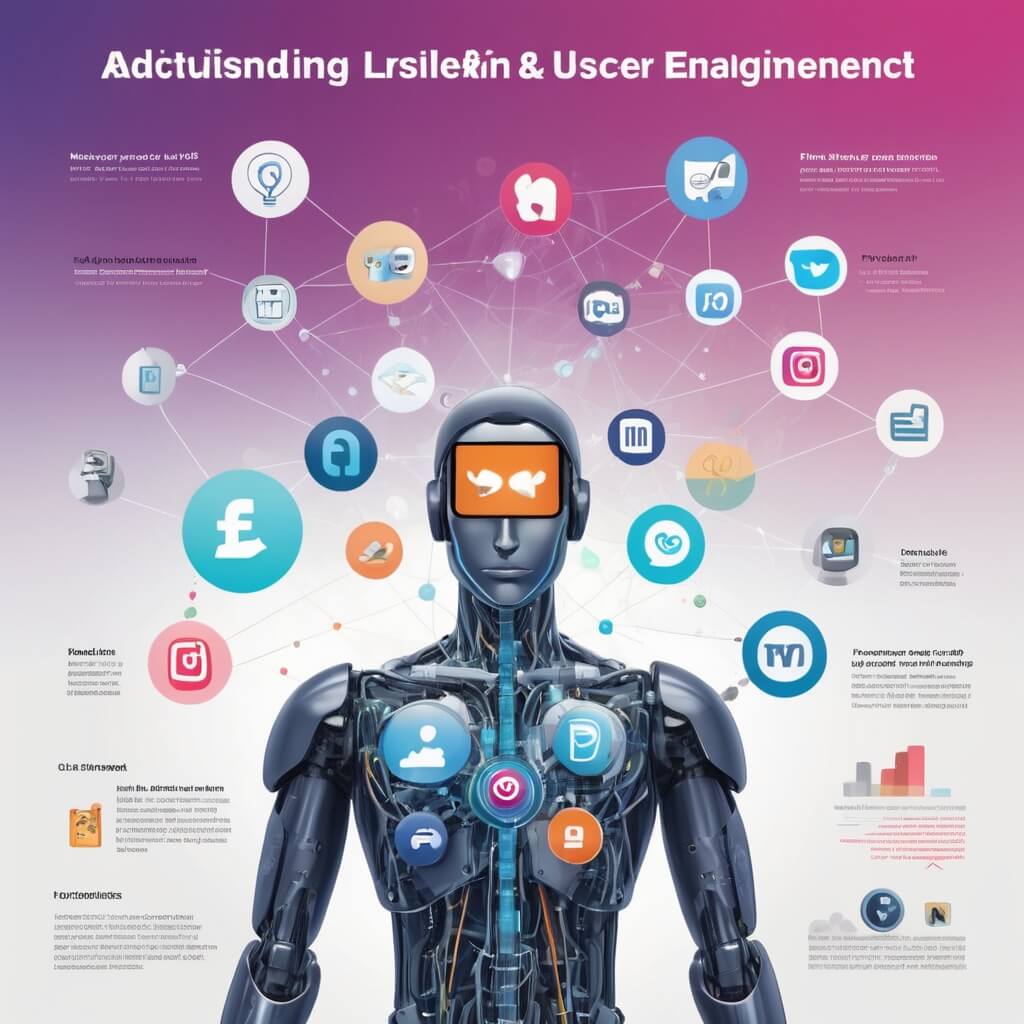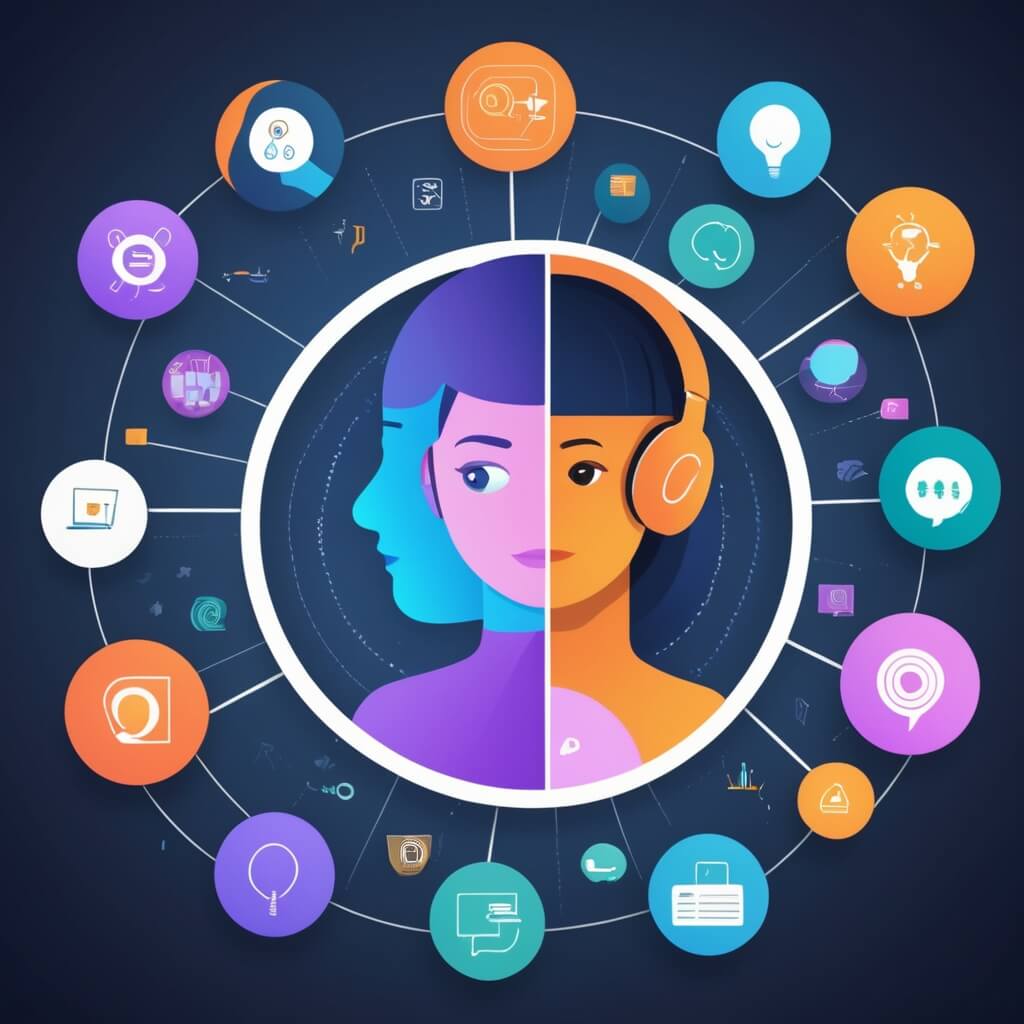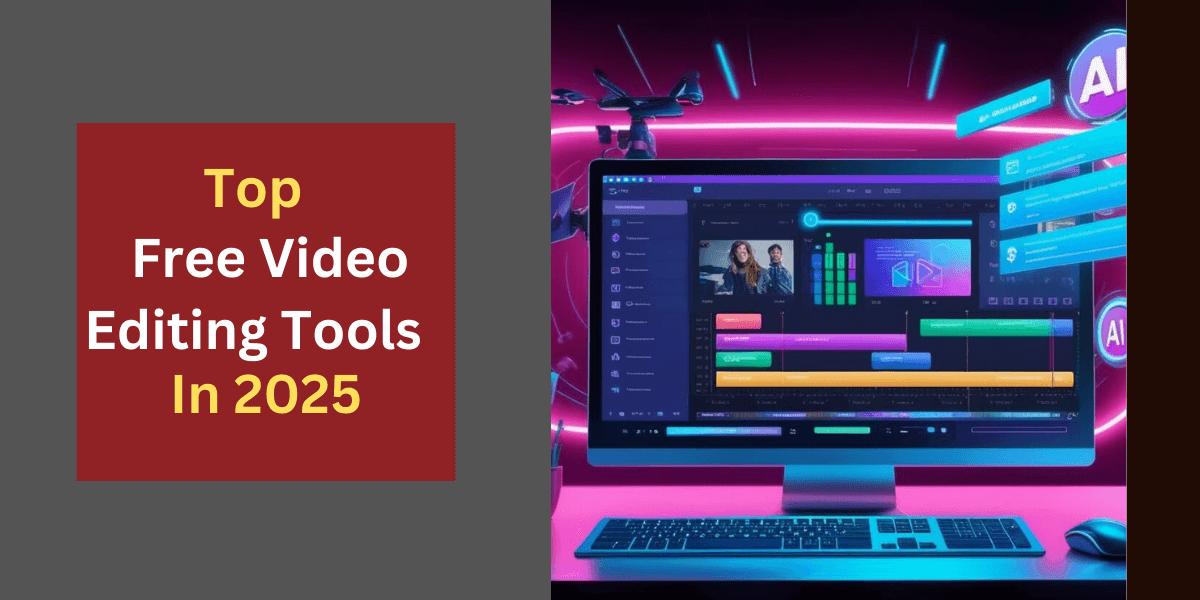Imagine a world where digital marketing is fully automated. You only need to share your ideas and get the best results. This isn’t just a fantasy but a reality brought to life by artificial intelligence in digital marketing. As new startups and businesses strive to make their mark in the digital landscape, AI has become a game-changing tool transforming digital marketing.
What does AI mean for marketers, and is it truly beneficial? How can it enhance your strategies and boost your ROI? AI-powered chatbots are available 24/7 and advanced analytics, which used to take humans hours to process, now deliver insights with ease. AI is reshaping every aspect of digital marketing. It’s not just about working smarter but unlocking potential you never imagined.
In this blog post, we’ll explore the world of AI in digital marketing from a simple yet profound perspective. We’ll look at how AI is powering conversational marketing, automating content creation and SEO, revolutionizing social media strategies, and helping paid ads reach the right audience with precision. Get ready to dive deep into the real power and potential of AI, so you can take your digital marketing efforts to new heights and achieve better results.
AI-Powered Chatbots and Conversational Marketing

Chatbots and Conversational AI:
In the past, traditional customer support systems were limited by the availability of human agents, but chatbots have eliminated this restriction. AI-powered chatbots can respond to customer queries 24/7, any time of day or night, and they engage in accurate and relevant conversations, just like humans. This keeps customers engaged and enhances their overall experience.
The biggest advantage is that customers no longer have to wait for assistance and can get real-time support. Brands like Amazon, Flipkart, and even banks are using AI-powered chatbots to ensure seamless user experiences and improve customer satisfaction.
Lead Generation and Qualification:
AI chatbots are not limited to customer support—they are also highly effective in lead generation and qualification. When a visitor comes to your website, chatbots interact with them to understand their preferences and requirements.
These chatbots gather basic information such as contact details, product interests, and budget. They then forward this information to the sales team, allowing them to focus on qualified leads. This process speeds up lead qualification and saves valuable time.
AI in Content Creation and SEO
Content creation and SEO are both crucial pillars of digital marketing. With the advent of AI, both fields have seen significant updates. AI tools help make content creation faster, more engaging, and highly relevant. Moreover, AI plays a major role in boosting search engine rankings through SEO optimization.
SERP Ranking Predictions
One of the biggest contributions of AI to SEO is in ranking predictions on SERPs (Search Engine Results Pages). AI-powered SEO tools help predict future ranking patterns by analyzing historical data, competitor strategies, and user behavior. These tools offer suggestions to improve your content’s ranking.
For instance, AI can identify which keywords are likely to rank in the future, which ones to focus on, and how much competition they carry. With AI predictions, you can proactively shape your SEO strategy to stay optimized for Google’s latest algorithm updates and achieve higher rankings.
AI-Powered Content Creation
AI has taken content creation to the next level. AI tools like GPT (Generative Pre-trained Transformer) assist in generating high-quality content, and some tools even create content directly for you. Whether it’s blog posts, product descriptions, social media posts, or ad copy—AI can handle it all.
Using AI-powered tools, you can generate ideas, topics, and writing prompts, saving time and allowing you to post content faster. This speed can give you an edge in SEO by allowing your content to rank higher.
Content Optimization for SEO
Artificial intelligence produces and enhances content. After content is created, AI tools help make it even more SEO-friendly.
AI tools like SEMrush, Ahrefs, and Ubersuggest help you discover accurate keywords. They also analyze your competitors, allowing you to assess keyword traffic and difficulty so that you can better target your audience.
AI also improves content readability. These tools can write content that feels more human-like and identify minor issues like grammar and spelling errors, making the content more reader-friendly. This increases user engagement by making the content easier to understand.
AI in Social Media Marketing

In today’s digital world, social media is one of the most active spaces, with millions of pieces of content being published every second. Major platforms rely on AI to manage this flood of content.
AI plays a significant role in social media, from content creation and audience targeting to ad campaign automation and customer support. For both digital marketers and users, AI has become an indispensable tool, simplifying many aspects of social media marketing.
Audience Targeting and Social Listening
With millions of active users on social media, reaching the right audience can be challenging. This is where AI comes in, making the process more precise and simpler.
AI helps with audience targeting through behavioral segmentation, lookalike audiences, and real-time adjustments. AI tools allow brands to track user reviews, interests, engagement, conversations, and trends. These tools analyze audience data in real-time and provide insights into how users are interacting with your brand.
Ad Campaign Automation and Performance Analytics
AI has become so intelligent that it can automatically manage ad campaigns. It can create ad creatives based on audience behavior, monitor real-time performance data, and optimize the campaign for the best results. This ensures that campaigns reach the right audience, saving both time and effort.
AI-based analytics tools analyze data in real-time, offering insights into campaign performance, audience behavior, and ROI. These tools provide ongoing insights that allow you to make changes and improve your campaigns.
AI and Marketing Automation
In the past, marketing tasks had to be done manually, which required a lot of time and effort. However, since AI entered the market, many of these tasks have become fully automated. AI can handle almost everything, leaving only competitive work for experts.
There are numerous daily marketing tasks, such as email marketing, lead scoring, and social media posting, that AI can significantly assist with. It makes these tasks more valuable, smarter, and faster, allowing experts to focus on more important work.
Popular Tools for Automation:
- Email Marketing: Mailchimp & ActiveCampaign
- Lead Scoring and Nurturing: HubSpot & Marketo
- Social Media Posting Automation: Hootsuite & Buffer
- Content Creation Automation: Jasper, Copy.ai, & ChatGPT
- Analytics and Reporting: Google Analytics 4 & SEMrush
- Ad Campaign Optimization: AdEspresso & Smartly.io
- Customer Service Automation: Zendesk & Drift
Challenges and Ethical Considerations of AI in Marketing
AI offers numerous benefits, but it’s essential to consider the challenges and ethical concerns it presents. If overlooked, these can result in significant losses. Some of the main challenges of AI include data privacy, transparency, and the absence of a human touch. Let’s explore these in more detail.
Data Privacy & Security
One of the biggest challenges AI faces is ensuring user privacy and data security. Whenever AI is used to collect data, users often worry about whether their information is safe and if it could be misused. These concerns make users uneasy.
Solution: Companies and brands must keep their data and privacy policies transparent. Gaining customer consent and using proper encryption technologies is crucial. It’s important to reassure users that their data is completely secure and won’t be misused. This will help build trust.
Transparency & Human Touch
Transparency and the human touch are closely linked. Search engines don’t want solely AI-generated content; they want a human element too. If AI is being used, transparency becomes equally important.
Meaning: When users visit your website, it’s important to clearly and honestly inform them that AI tools are being used, how their data is being utilized, and how they’re receiving personalized recommendations. Explain the impact AI has on their decisions as well.
Solution: Businesses should always inform users how AI is being used, how their data is kept secure, and what basis the suggestions or ads they receive are based on. Following ethical marketing practices is essential.
Human Touch: Having a human touch is critical for businesses. While AI can handle simple queries and problems, complex or emotional issues often require human intervention. Humans have the ability to understand users better, especially in emotional or critical situations where AI may not perform as well.
Simple Solution: Businesses shouldn’t rely solely on AI. There needs to be a good human support system in place to handle such situations effectively.
User Experience with AI

Google and other popular search engines and social media platforms heavily focus on user experience as a ranking factor. Search engines want users to receive the most accurate results and information.
Websites that don’t provide a good user experience—such as those with low-quality content, slow loading times, or poor interfaces—don’t achieve high rankings. AI helps assess these factors, ensuring users see content and services tailored to their interests, which keeps them on the site longer. This signals to Google that the website is user-friendly and should rank higher.
Through AI, brands can analyze users’ past data to create personalized marketing strategies based on their interests. For example, if a user is interested in sports, they’ll see related photos, videos, and products. This personalized approach enhances user satisfaction and strengthens brand loyalty.
Major brands like Amazon, Netflix, YouTube, Alibaba, Starbucks, Nike, Walmart, and H&M prioritize user experience, benefiting greatly from this focus.
Top AI Trends in Digital Marketing for 2025
AI-Enhanced Voice Search Optimization:
Nowadays, people prefer voice search over typing. As a result, voice search will become even more popular in 2024, and AI will make the process much smoother. Here’s an example of a voice search:
“Hey Google, what is social media marketing vs digital marketing marketing? “
Marketers are increasingly using smart speakers and software (like Alexa, Google Assistant, Google Home, and Apple Siri), and AI tools will prove very beneficial for SEO experts and digital marketers.
Hyper-Personalization Through AI:
In 2024, hyper-personalization will be in high demand. This trend will provide users with completely customized experiences. AI tools will analyze users’ browsing history, search patterns, and social media activity to show them personalized content and ads. This will improve conversion rates, engagement, and trust in the brand.
AI for Fraud Detection and Cybersecurity in Marketing:
As the internet and digital transactions grow, so do online scams, fraud, and blackmail. This is why fraud detection and cybersecurity are becoming increasingly important in 2024. AI algorithms will become smart enough to detect unusual behavior, helping businesses secure their data and transactions. AI will also help protect everyday users’ privacy.
Video and Visual Search Optimization:
Nowadays, people prefer videos and visual content over written text. AI tools will take videos and visuals to the next level, providing users with content that’s relevant, entertaining, and informative. This will help capture users’ attention on specific websites or platforms.
E-E-A-T (Experience, Expertise, Authoritativeness, and Trustworthiness)
To rank well on Google, it’s essential to understand the E-E-A-T factors: Experience, Expertise, Authoritativeness, and Trustworthiness. Google’s AI is so advanced that your content must embody these four qualities to be considered high-quality and rank at the top.
Experience: Experience refers to the amount of time you have spent in your field and what you have learned. Your expertise adds value to your content because it allows you to share practical insights and examples. How you solved the challenges you faced can only be understood through experience, which can be quite helpful for users.
Expertise: Expertise means having deep knowledge and skills in the topic you are writing about. When you possess expertise, you can provide users with accurate and informative content that will assist them.
Authoritativeness: Authoritativeness refers to how well your content is supported by reliable and credible sources. If your content is valuable and is referred to by major creators in the industry on trusted websites, your authority increases. This leads people to trust your content more.
Trustworthiness: Trustworthiness means how real and honest your content is. The information you provide should be accurate and valuable; only then can you build trust. Especially in fields like finance and health, you need to focus on transparency, accuracy of information, and fact-checking.

Conclusion
Nowadays, AI is rapidly advancing in digital marketing. AI-powered chatbots that provide 24/7 customer support, advanced social media marketing tools, and automation techniques that simplify targeted advertising, along with high-powered analytics tools for real-time data analysis, are proving to be beneficial for businesses. Smart AI tools for content creation are also helping to generate engaging content. Every day, we see new updates and changes in AI and digital marketing, so it is essential to keep up with the latest trends to fully leverage the benefits of AI.
By 2025, businesses that adopt AI-driven strategies will improve their customer support, audience engagement, and content creation even more. These businesses will experience rapid growth as they follow the latest trends. Powerful AI tools for SEO are also helping content rank organically, which is highly beneficial for any digital marketer.
To learn more about digital marketing and social media marketing, be sure to read our articles “Social Media vs. Digital Marketing” and “How to Earn Money from Instagram Reels.” Let’s work together to take your digital marketing future to greater heights!
FAQs
What is the relationship between AI and Digital Marketing?
AI algorithms help brands understand customer behavior, analyze data, and optimize campaigns according to their needs. This provides marketers with real-time insights, allowing them to make their marketing strategies more valuable. AI-powered tools make it easier to deliver engaging content, automated emails, SEO, social media marketing, and targeted ads.
What is the future of AI in Digital Marketing?
By 2025-2030, the role of AI in digital marketing is expected to grow. AI will enable marketers to personalize their campaigns even more, gain better customer insights through machine learning, simplify content creation and emailing, and use predictive analytics to identify future trends in advance.
How does AI help small businesses compete with large businesses?
Due to AI, small businesses are now able to compete with larger companies. AI allows small businesses to automate their marketing strategies, enhance customer engagement, and easily reach specific audiences through targeted ads. AI tools like chatbots help small businesses provide 24/7 customer support, which was previously something only large businesses could afford. This enables small businesses to successfully engage and retain their customers.
Can AI completely replace human marketers?
No, AI cannot completely replace human marketers. However, those who make better use of AI and are ready to learn daily latest trends will move ahead and may replace others.
How is content creation evolving with AI?
AI is rapidly evolving in content creation. Many automated content-generation tools for writing, graphic designing, and video editing have been launched, making it easier to create content. However, content created solely by AI is not always of high value; it still requires a human touch.







